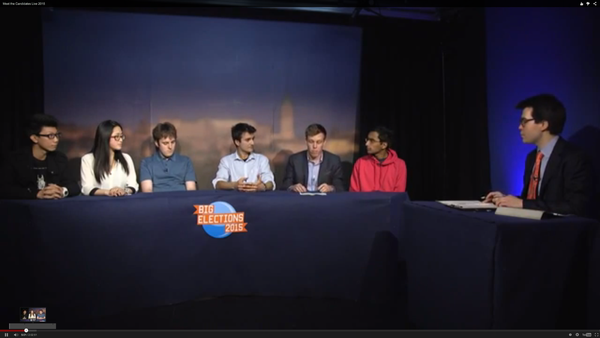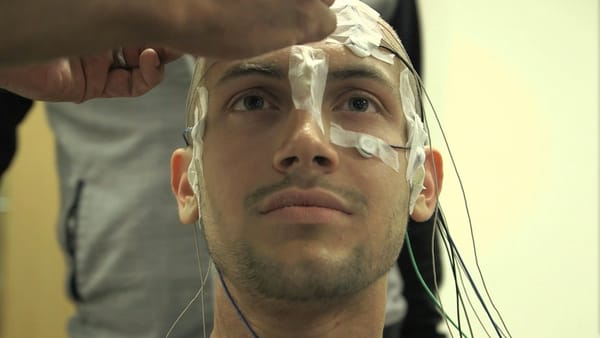The Big Elections 2015: Felix finds out who you’re voting for
Our predictions for the next year's sabbatical officers [Updated with link to results breakdown]

Update:Click here for a full breakdown of the results by faculty, year, and gender.
For the first time in its history, Felix has run an exit poll for the Big Elections. Now voting has closed, we can now announce our predictions for who will be next year’s sabbatical officers.
Our poll, which was open from the start of voting until Thursday evening, asked voters who their first choice preference was for the positions of President, the Deputy Presidents, and Felix Editor.
The number of votes cast has already passed many of last year’s milestones. At time of print we had already beaten the number of voters, although as there are more students eligible to vote this year, we are yet to beat last year’s percentage of 39.31%.
On average, students can vote for 33.6 positions, although 6 people have 100 or more positions to cast their vote for. The most number of positions one poor student has to vote for is 144.
Respondents were asked what type of student they are, what gender they identify as, what year of study they are in, what their fee status is, and what department they were from; so the Felix analysis team could look for patterns and trends.
Unlike the election itself, which makes use of the Single Transferrable Vote system, our poll only asked for voter’s first preference.
As it is possible for the person who commanded the greatest share of the vote from first preferences to not win the election – this was seen (for example) last year in the election for RCSU President – there is a possibility that the person we identify as coming first place may not actually win the election when subsequent preferences are taken into consideration.
Additionally, readers are warned that this poll may not be completely accurate, as a result of the low number of responses (150), especially for certain groups of students (namely those in the RSM, and postgraduates), so we warn readers (and candidates) that the results announced on Friday night may well differ to our predictions.
Our predictions are as follows. For the position of President, Luke Armitage was selected by 17% of respondents, Lucinda Sandon-Allum 59%, and RON at 24%, meaning we predict Lucinda to become next year’s President. 118 people cast their choice for this role.
For Deputy President (Finance and Services), Ali Lown took 22%, Lizzie Campbell 16%, Christopher Kaye 53%, and RON 9%, 112 people made a choice for this position.
Meanwhile, for Deputy President (Welfare), Diba Esbati was chosen by 21%, Jenny Watson 65%, and RON 14%, with 107 responses. Therefore, we expect Chris to be next year’s DPFS, and Jenny the DPW.
Two positions which were uncontested were Deputy President (Education), where Chun-Yin San commanded 70% of the 107 responses, and RON 30%; while for Felix Editor, Grace Rahman took 85% of the 111 responses and RON 15%.
Chun and Grace are expected to be next year’s DPW and Felix Editor respectively.
However, one of the most interesting cases was Deputy President (Clubs and Societies), where Tom Rivlin took 29%, Ben Howitt 47%, and Issy Barrett 15%, leaving RON with 10%.
Whilst we expect Ben to be next year’s DPCS based on these results, whether Tom wins on Friday night based on second preferences could be a possibility. 105 people cast a choice for this position.
Analysis of our demographic reports showed some interesting trends. For the position of Deputy President (Welfare), none of the people who responded to our poll who are medics chose Diba Esbati – it is of note that Jenny Watson is the current ICSMSU Welfare Officer.
Meanwhile, DPCS candidate Tom Rivlin enjoyed much greater popularity from Natural Sciences students than those from other faculties according to our poll (Rivlin is a Physics undergraduate).
When looking at the gender distribution, people who identified as female were far less likely to select Luke Armitage for President, but also chose RON in slightly larger numbers.
Lucinda Sandon-Allum was also chosen more often by female students than male. Looking at DPCS, Issie Barrett took nearly double the number of choices from female students than male ones. Whilst this may suggest that people vote along gender lines, further research would be needed to confirm this possibility. Perhaps more interestingly, with DPFS, Chris Kaye’s popularity dropped significantly with female voters, while Ali Lown’s increased.
RON consistently performed better with older students (bar one hiccup in the trend with DPW). Candidates who bucked the trend included Tom Rivlin (DPCS), Lizzie Campbell (DPFS), and Ali Lown (DPFS).
Full demographic breakdowns will be on the Felix website later on Friday 13th March, and the actual results of the Big Elections 2015 will be announced at the Union’s results party (Friday 13th, 8PM, Metric) and online shortly afterwards.









